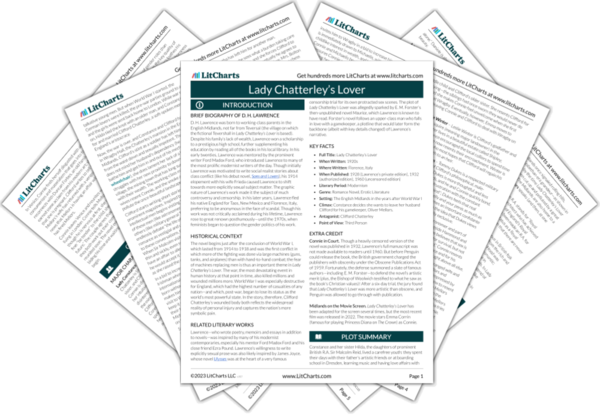Lady Chatterley’s Lover began with the mention of cataclysm; in this touching conclusion, Mellors emphasizes the value of “hope,” of finding one “little flame” still burning amidst the rubble of violence and mechanization. As always, Mellors focuses on sex and nature—both symbolized by flowers—as the ingredients of this hope. But in signing off with a “drooping” “John Thomas” (perhaps a reference to his flaccid penis), Mellors moves from thinking purely in terms of passion to valuing “heart,” emphasizing not only rugged sex but patient, lasting commitment.
